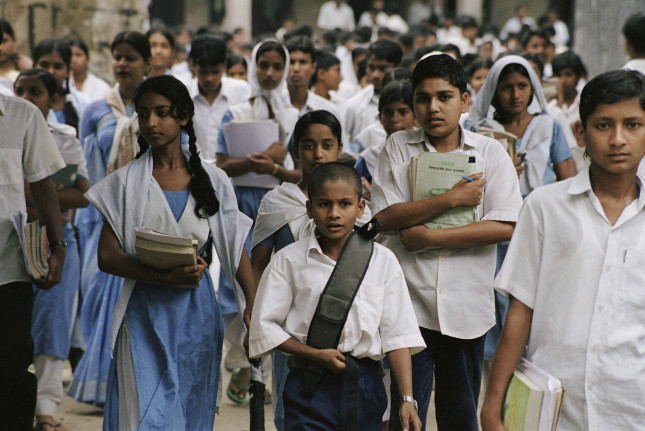-
Demographic Transitions and Ecological Tipping Points: Top Posts for October 2018
November 2, 2018 By Benjamin Dills
Once the same country and demographic twins, Bangladesh and Pakistan have diverged greatly in demographics since Bangladesh’s independence in 1971. Richard Cincotta and Elizabeth Leahy Madsen take a look at how despite the country’s vulnerability to extreme weather, sea-level rise, and Islamic extremism, Bangladesh’s bulge of working-age adults with relatively small proportions of seniors and young children offers potential for sustained development.
In October’s second most popular post, Josh Busby, Ashley Moran, and Clionadh Raleigh share results of a project that provides a global portrait of where climate exposure and state fragility intersect. Many of the same conditions that lead to climate exposure, such as degraded land and weak governance, are the same as those that contribute to state fragility, compounding climate-fragility risks.
Solar power is not a free lunch, writes Olivia Smith in the third most popular post. Large solar farms divert land away from other uses, such as agriculture, which can impact local economics, food security, and potentially lead to backlash against solar energy when local communities are not engaged as stakeholders in the development of solar projects.
The Amazon is reaching a tipping point of fragmentation, degradation, and outright deforestation, reports Evan Barnard, covering an event hosted by the Wilson Center’s Brazil Institute. The loss of the Amazon’s capacity to absorb carbon and regulate regional precipitation could have significant consequences for South America and the world.
Finally, Isabel Griffith reports on an event hosted by the Maternal Health Initiative and USAID’s flagship Maternal and Child Survival Program on the challenge of poor care for maternal and child health. Even more than the lack of access to healthcare, poor quality care is now the biggest obstacle to reducing maternal and child mortality.
1. Bangladesh and Pakistan: Demographic Twins Grow Apart by Richard Cincotta and Elizabeth Leahy Madsen
2. The Double Burden of Climate Exposure and State Fragility by Josh Busby, Ashley Moran, and Clionadh Raleigh
3. The Dark Side of the Sun: Avoiding Conflict Over Solar Energy’s Land and Water Demands by Olivia Smith
4. Warning: The Amazon May Soon Reach the Point of No Return on Forest Loss by Evan Barnard
5. Saving Lives: Focusing on Outcomes to Improve Maternal and Newborn Healthcare Quality by Isabel Griffith
Photo Credit: Bangladeshi school children, May 2014. Photo by Scott Wallace / World Bank.
Topics: What You Are Reading
 A Publication of the Stimson Center.
A Publication of the Stimson Center.



